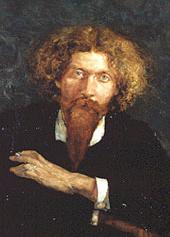Zo
Zo d’Axa (1864-1930)
 Zo d’Axa, born Alphonse Gallaud de la Pérouse in 1864, was a member of one of France’s most prestigious families, counting among its members navigators, high functionaries, artists, and writers.
Zo d’Axa, born Alphonse Gallaud de la Pérouse in 1864, was a member of one of France’s most prestigious families, counting among its members navigators, high functionaries, artists, and writers.
He quit school to seek adventure in the colonial army, which he soon deserted in the company of his commanding officer’s wife. He lived in Belgium, where he began his career as a writer, but soon moved to Italy, where he worked as an art critic.
Amnestied for his desertion, he returned to France in 1889, and in 1891 began publication of his first newspaper, “L’Endehors.” Though he refused to call himself an anarchist, the journal was a focal point for fin de siecle anarchists, and his violent attacks on the established order earned Zo d’Axa, as well as the other editors of “L’Endehors,” time in prison. When Axa started a campaign to raise funds for the families of the imprisoned, he was charged with the crime of associating with criminals.
Imprisoned at Mazas, he refused to cooperate with the authorities and was denied the right to a lawyer or visitors. The journal continued to appear in his absence and, when he was released, “L’Endehors” published yet another article judged offensive by the authorities. Rather than return to jail, Zo d’Axa left France, going to Holland, Germany, Italy (where he witnessed a trial of anarchists and was again arrested), Turkey and finally Palestine. Again arrested, he was deported to France where he spent 18 months in the Marseilles prison.
Freed in 1894, he wrote an account of his adventures, “De Mazas a Jerusalem” which received wide critical acclaim. During the Dreyfus Affair he supported the cause, though he dismissed Dreyfus the man by saying: “If this monsieur wasn’t a traitor, he was a captain.”
He started one last journal, “La Feuille,” which achieved notoriety when it sponsored a donkey as candidate for the Chamber of Deputies. But by 1900 he had had enough of politics and France, and left the country. He travelled the world until finally returning to Marseilles, where he committed suicide on August 30, 1930.
See Zo d’Axa Archive.
Zola, Émile (1840-1902)
 French novelist, leader of the naturalist school and one of the first,
along with Jaurès to publicly
speak out supporting Captain Dreyfus in the espionage case against him. He
authored an article, "I accuse" in 1898, which exposed the lies by the war
ministries in the case which led to the eventual acquittal of Dreyfus.
French novelist, leader of the naturalist school and one of the first,
along with Jaurès to publicly
speak out supporting Captain Dreyfus in the espionage case against him. He
authored an article, "I accuse" in 1898, which exposed the lies by the war
ministries in the case which led to the eventual acquittal of Dreyfus.
See Émile Zola Archive.